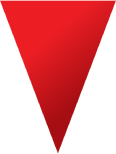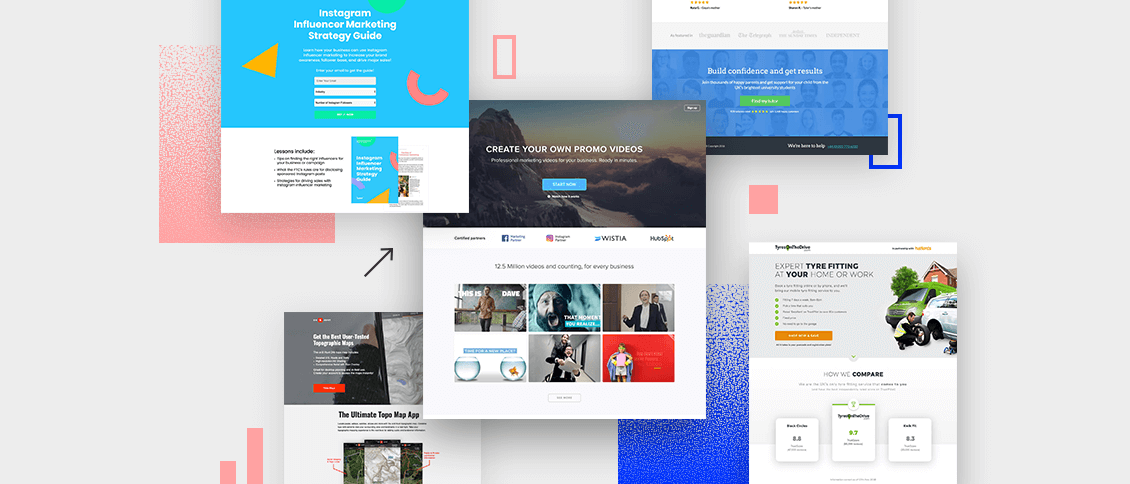


To accomplish this particular goal, you need to define and understand your target audience and design the right sections to communicate your value in a compelling way. In this blog, you will learn how to create a winning landing page with these 10 simple landing page tips:
Before you can promote your brand, product or service to new visitors, you need to define your business goals. Are you looking to generate brand awareness, boost sales for enterprise customers, build an email list from lead generation techniques, or educate your audience in some way?
Each type of goal falls into one of 3 objectives:
Awareness
Engagement
Conversion
You should determine what outcome you’re looking for before you start designing your landing page.
The look, feel, and overall structure of your design will have a huge impact on the effectiveness of your landing page and how well it drives conversions. The primary goal of your landing page should be to make it as easy as possible for a visitor to convert, so it is important that all elements of your page work towards the conversion objective, whether it being filling out a form, making a purchase, signing up for a newsletter, downloading an e-book… and so on.
An effective landing page design makes smart use of color, font and eye-catching images. In other words, it’s important that your landing page has:
· Easy-to-read fonts
· Colors that don’t fight each other
· Intuitive navigation
· Obvious CTA buttons or links
· Related Image(s) / video (if necessary).
Also make sure to put your most important information above the fold—the part of your screen that appears without scrolling (but don’t worry, more details can be added lower on the page, below the fold).
A high-converting landing page is one that takes powerful copywriting in mind. That’s why you need to take the time to craft an epic copy that gets customers itching to buy from you. This can be achieved by applying the following techniques:
Write a captivating headline that grabs the reader’s attention.
Write an introduction to the offer, its features, and benefits.
Write short paragraphs, snappy sentences, and a logical sequence.
Keep your language simple and digestible.
Bring up pain points customers are experiencing to create emotion.
Ask questions that relate to the customer’s experience
Answer to questions and objections customers may have.
Use urgency and scarcity to make customers feel they need to take immediate action
Use calls to action for pushing customers along the sales funnel.
A crispy copywriting with the above techniques in mind can greatly help you to get the customer excited, engaged and willing to take action.
In addition to figuring out how to polish your copywriting, how your headline and paragraphs should be, what features you should highlight, and so on, you need to consider what’s called: “the Rule of One” as helps you know exactly what to say.
The Rule of One takes the guesswork out of copywriting and shows you exactly why high-converting landing pages convert. So that you never start with a blank page. Instead, you can make your own high-converting landing pages whenever you need them. So what is the Rule of One?
The Rule of One is a framework that helps you create powerful, high-converting copy. It states that your copywriting should:
Target One Reader
Present One Big Idea
Make One Promise
Give One Offer
Here’s how each piece of the Rule of One tells you what to write (from bottom to top of the page):
E-books
Free trials / demos
Physical products
Online courses
Discount codes
Free quotes
Free Consultations
Free Gifts
Choose an offer that – depending on the nature of your business and services – appeals to your One Reader and makes One Promise to them.
The promise of your landing page is important to show people how their lives will change for the better if they buy what you’re selling. It helps people understand why they should accept your offer. Usually that means:
Showing how your offer will benefit them
Showing them how your offer removes a burning pain point
You can think of a great promise as the difference between “what this is” and “what you get.”
“It takes a big idea to attract the attention of consumers and get them to buy your product. Unless your advertising contains a big idea, it will pass like a ship in the night. I doubt if more than one campaign in a hundred contains a big idea.” – David Ogilvy
Simply put, a Big Idea is what connects all of the pieces of your landing page. If someone asks “what is this landing page about,” the answer is your One Big Idea.
When you work backwards from your “one offer,” each bit of your landing page design and copywriting falls into place. Your reader is waiting to hear from you. Right when they land on your page, they’re ready to be persuaded.
Your challenge now is to hold their attention. You can hold their attention by:
Directly addressing their pain points.
Using the exact words that they use to describe their problems.
This is why it’s crucial to write for One Reader. Different buyer personas have different pain points. Even if they do have the same pain points, different types of people use different language, and in whichever case they need to feel involved in what your landing page promises.
Using your audience’s exact words makes them feel like your message is for them and them alone. So you need to solve their exact, personally relevant problem(s)!
Can you tell the difference?
“Sales made simple” vs. “You hate guesswork and busywork — so we made sales less work”
“Affordable time tracking payroll software” vs. “The only time tracking tool that pays for itself”
“Break through native reporting limitations” vs. “Get the reports your CRM can’t give you — without the headache it does”
Again, voice of customer copy uses the exact words that your customer uses to describe their own problems.
VOILA can help you craft an optimal copywriting that talks, walks and sells for your business. All you need to do is simply fill out the form below, and we’ll get in touch with you in no time.